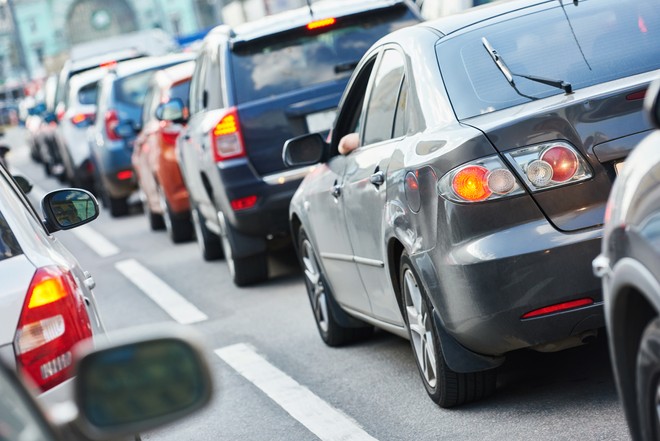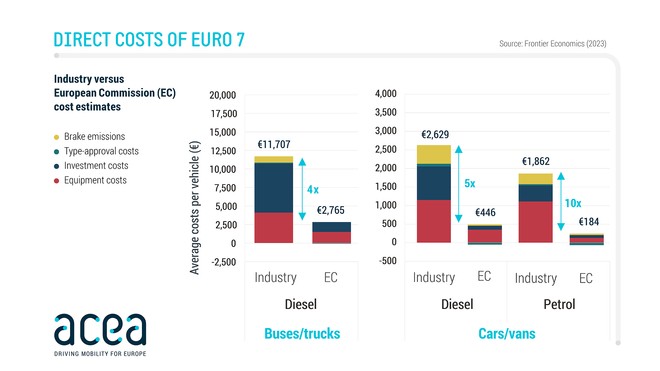
The issue of Euro 7 continues to be hotly debated. Only yesterday did we learn that Italy, together with 7 other EU countries, signed a document in which strong perplexities are expressed; on the contents of the regulation on polluting emissions, defining it an “unrealistic standard”, and highlighting the possible negative effects for the automotive sector.
Now, ACEA is intervening again on this issue, the association representing European car manufacturers, which once again points the finger on the price increases that cars will suffer following the introduction of Euro 7 and does so by quoting a study that he commissioned from Frontier Economics.
PRODUCTION COSTS INCREASING
According to what emerged, following the introduction of Euro 7, the costs of cars and vans will increase by around 2,000 euros. Indeed, the increase will be around 12,000 euros for diesel trucks and buses. These estimates are 4 to 10 times higher than those of the Commission's impact assessment of the new emissions legislation (€180-450 for cars and vans and €2,800 for trucks and buses).

Attention, however, we only talk about direct production costs, mainly for equipment and investment. Therefore, it is not about the estimate of the increase in sales prices. The increase in the final cost of the vehicle, warns ACEA, could be higher. For the association already the current Euro 6/VI standards are comprehensive and rigorous. Euro 7, on the other hand, would bring limited benefits from an environmental point of view in the face of a high cost. Sigrid de Vries, General Manager of ACEA, commented:
The European automotive industry is committed to further reducing emissions for the benefit of the climate, the environment and health. However, the Euro 7 proposal is simply not the right choice. the right way to do it, as it would have an extremely low environmental impact at an extremely high cost. Major environmental and health benefits will be achieved by the transition to electrification, while at the same time replacing older vehicles. old on EU roads with Euro 6/VI models.
According to the association, Euro 7 will bring more money. also to an increase in indirect costs, such as, for example, greater fuel consumption necessary to bring the catalyst to the correct temperature in the event of a cold start of the car. Over the life of a vehicle, fuel costs are estimated to increase by 3.5%, equal to 20,000 euros more than the average cost. for trucks and 650 euros for cars and vans. These indirect costs, ACEA points out, were ignored by the Commission during its assessment of the impacts of Euro 7.
Therefore, in addition to the price increase, Euro 7 would lead to an increase in ownership costs of cars, putting additional financial pressure on consumers and businesses in a period of high inflation and rising energy prices.
The Android most? small and mighty? Samsung Galaxy S23, on offer today from smartapp for 615 euros or from eBay for 669 euros.

